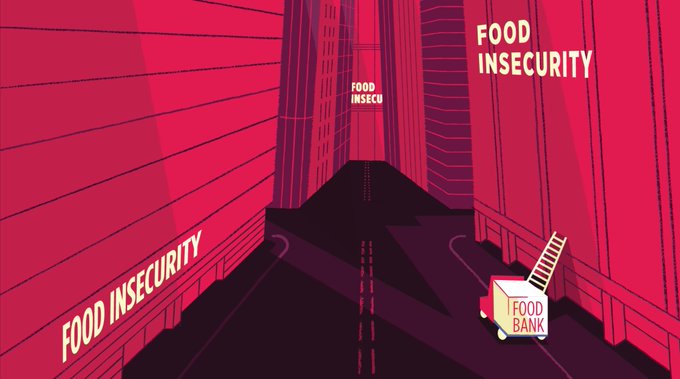
Our new study, “Food insecurity amid the COVID-19 pandemic: food charity, government assistance and employment”, published in Canadian Public Policy, looks at the face of food insecurity in the early days of the pandemic as it relates to employment and the new federal funding for food charity. We analyzed data from Statistics Canada’s Canadian Perspective Survey Series 2 (CCPS-2), an online survey of all ten provinces in May 2020.
Simply having a job does not protect someone from food insecurity. Before the pandemic, 65% of food-insecure households relied on wages and salaries as their main source of income in 2017-2018. Which workers were most vulnerable to food insecurity when the pandemic hit?
People who continued to work outside the home (e.g., essential workers), those who had been working from home before the pandemic and continued to do so (e.g., customer service representatives), those who thought job loss was imminent, and those who stopped working due COVID-related business closure or layoffs. Also at very high risk of food insecurity were working-aged people outside the workforce entirely.
Previous research on the relationship between employment and food insecurity established that households relying on low-wage, part-time, temporary, or precarious jobs, or a single wage earner for multiple people were especially vulnerable. The job disruptions brought on by the pandemic may further exacerbate these households’ financial hardship and food insecurity.
This study also found that only 7.4% of the food-insecure households made use of food charity in the past 30 days. This is a stark reminder of the wide disconnect between food insecurity and food bank use that existed before the pandemic. It calls into question the federal government’s decisions to allocate an unprecedented $250 million to charitable food assistance programs in 2020 in the name of addressing food insecurity during the pandemic and an additional $140 million as part of the 2021 Federal Budget. These policy decisions further entrench food charity as Canada’s main response to this serious public health problem despite there being no evidence that food charity can move households out of food insecurity.

Read the paper here at Canadian Public Policy.
Men F, Tarasuk V. Food insecurity amid the COVID-19 pandemic: food charity, government assistance and employment. Canadian Public Policy 2021;Published online. Available from: https://www.utpjournals.press/doi/abs/10.3138/cpp.2021-001
